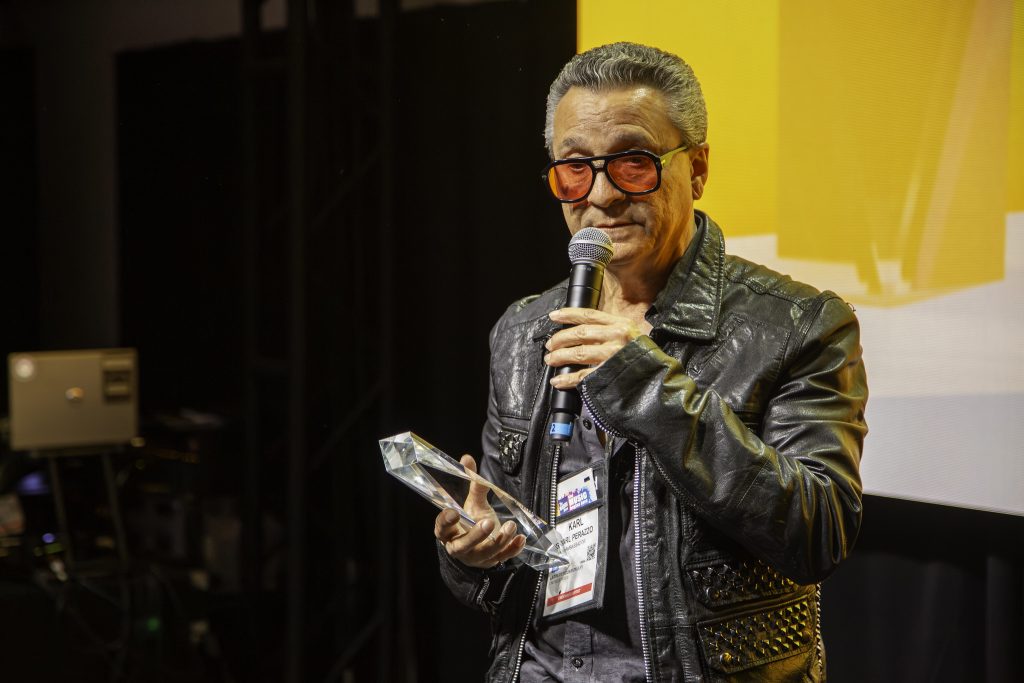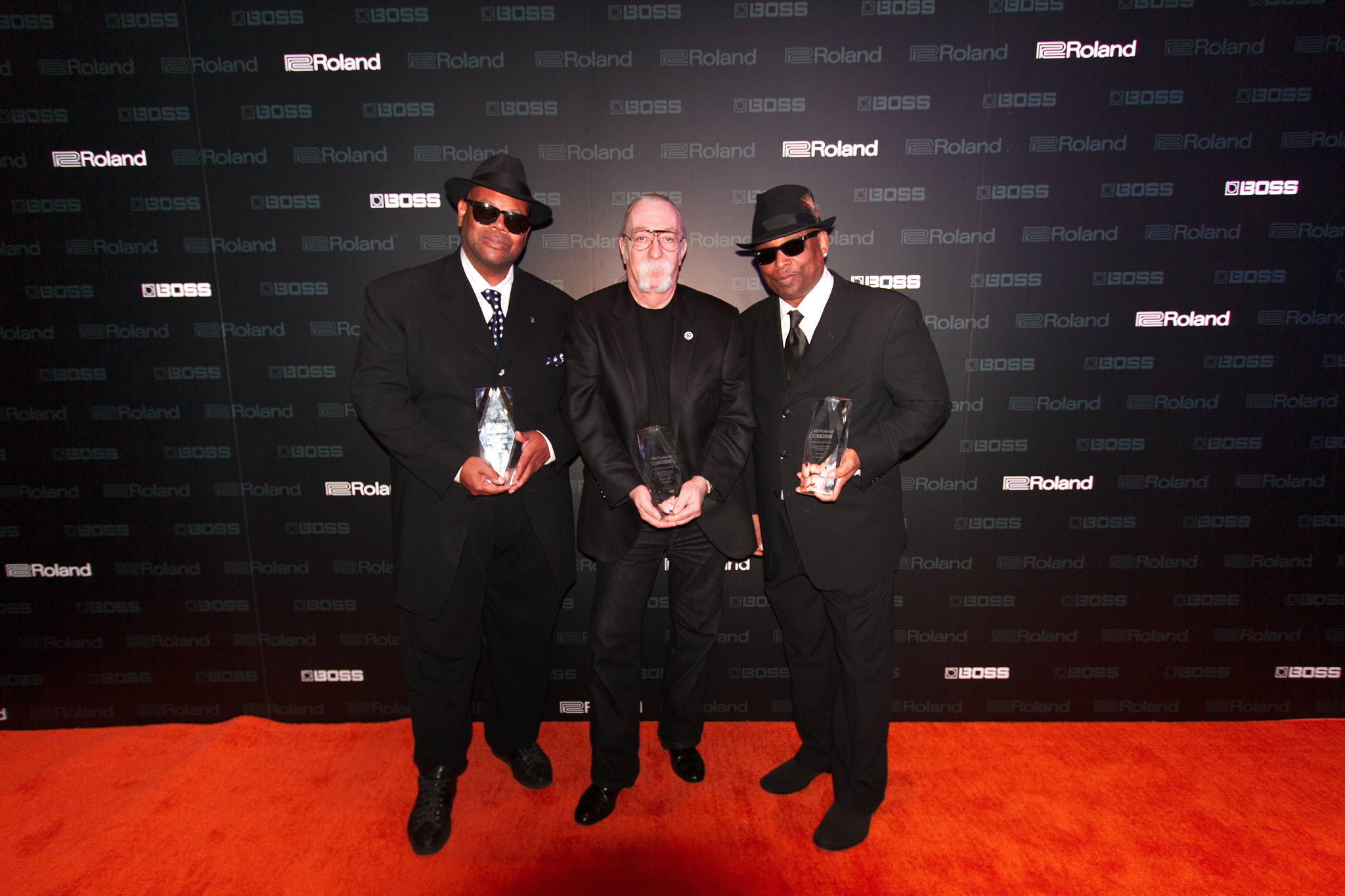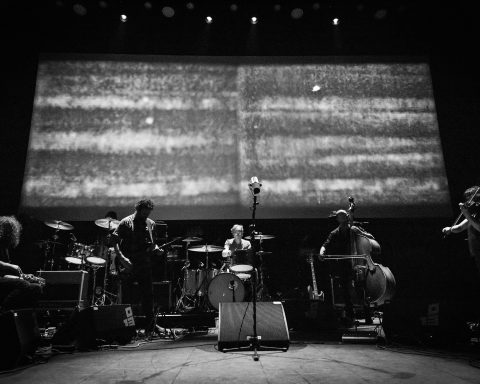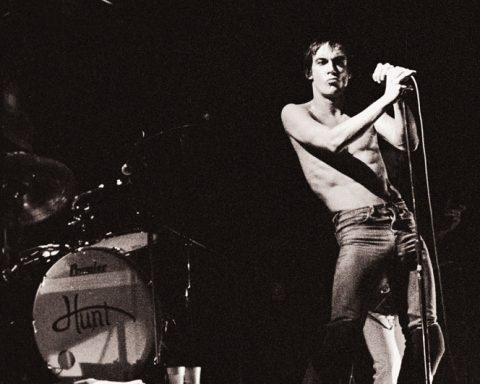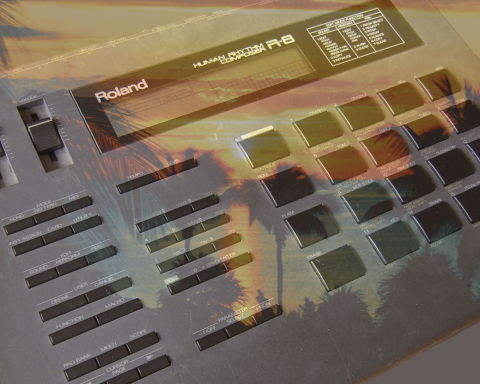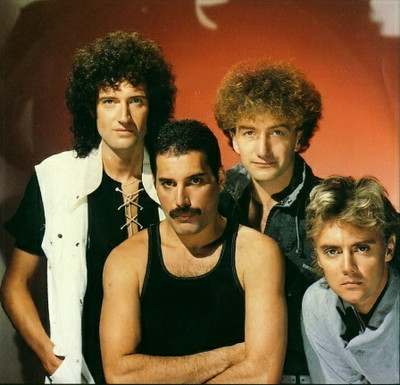The connection between Roland and the artist community has always been a strong and vital one. In 2016, the company decided to make an effort to document Roland’s history while simultaneously honoring its artists. To achieve this goal, the company introduced the annual Roland and BOSS Lifetime Achievement Awards to honor artists. From their start onward, the growth of the Lifetime Achievement Awards mirrors Roland’s evolution

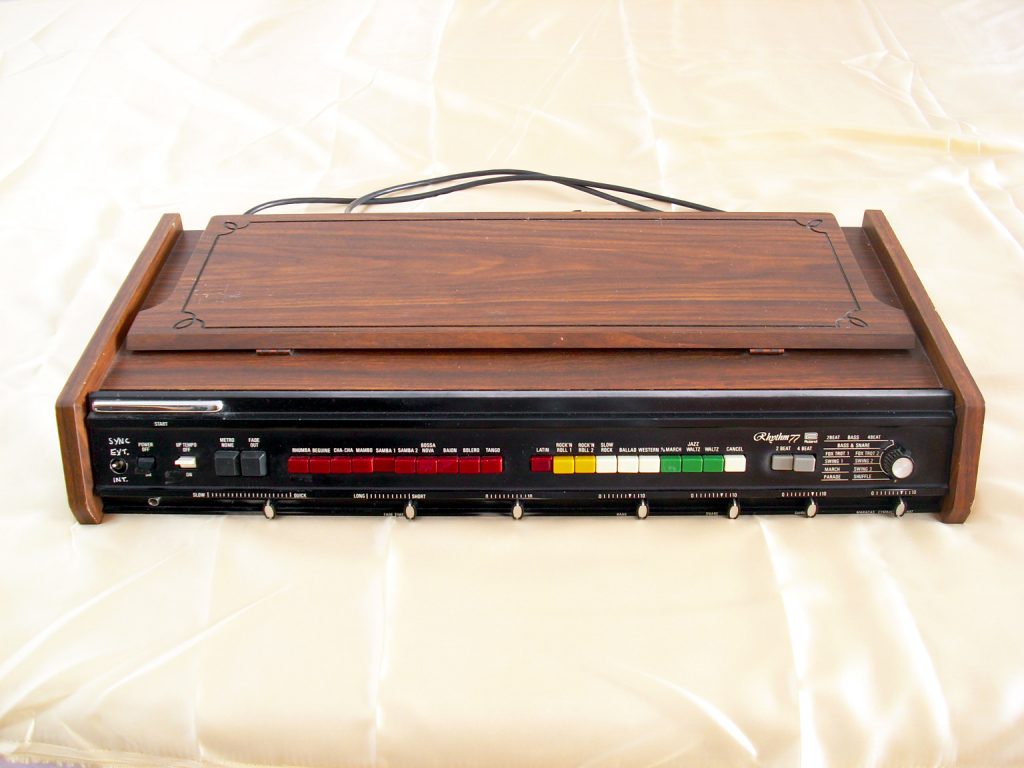
1972: The Year When Intuition Met Innovation
The late Ikutaro Kakehashi founded the Roland Corporation in Osaka, Japan in 1972. One year later he added the BOSS division of Roland to focus on bass and electric guitar effects pedals. Immediately, Roland differentiated itself from competitors.
The company did so with instruments that were affordable, intuitive, and small enough to transport with ease. The TR-33, TR-55, and TR-77 Rhythm Machines were the first products released under the Roland name. Additionally, the SH-1000 synthesizer proved a significant early success. BOSS marked its start with the B-100 acoustic guitar preamp and the GE-10 Graphic Equalizer. Both quickly cemented their popularity with guitarists.
Roland’s ability to offer alternatives to the often massive and expensive studio gear of the day was transformative. “It was huge in terms of the creative community because we had a piece of that rock,” Terry Lewis says. Half of the 2016 Lifetime Achievement Award-winning production duo Jimmy Jam and Terry Lewis, he adds, “They gave us access.”
Introducing the Lifetime Achievement Awards
There are no strict guidelines dictating winners in terms of commercial success, genre, or name recognition. Artists receive acknowledgment annually at the NAMM (National Association of Music Merchants) Show. Due to COVID-19, this year’s festivities happened via an impressive virtual ceremony.
Above all, the focus is on nominating artists with deep tied to Roland and BOSS. All demonstrate an ongoing commitment to incorporating their instruments into recording and performance. To appreciate the impact of the Lifetime Achievement Awards, let’s look at past winners and their use of Roland and BOSS instruments.
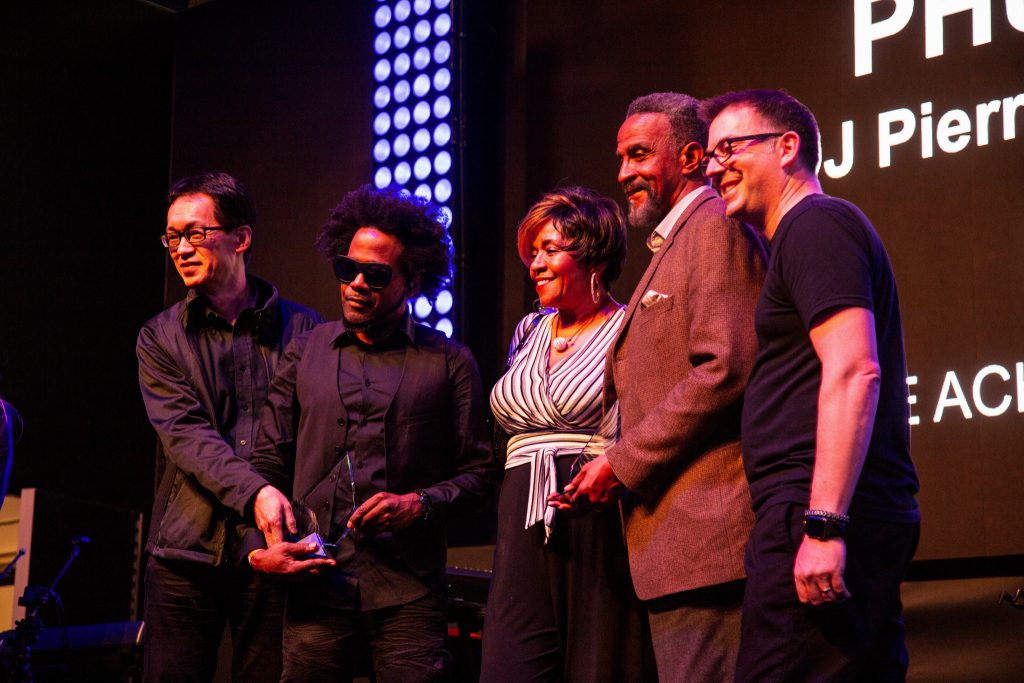
2016
Jimmy Jam and Terry Lewis
Skunk Baxter
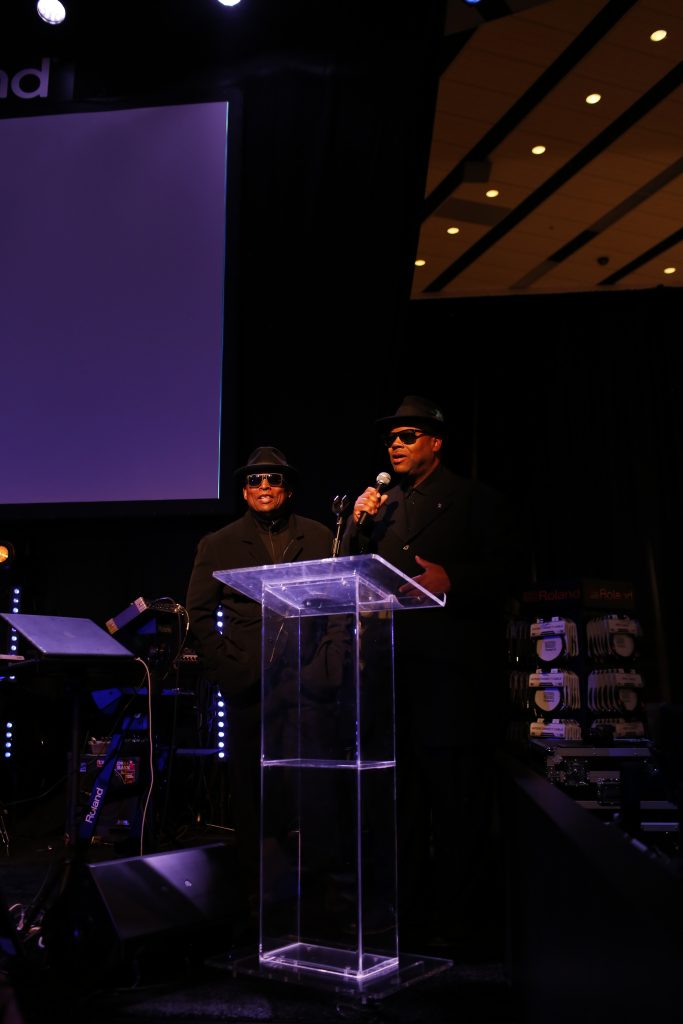
2016: The Year of Genre-Spanning Careers
Superproducers Jimmy Jam and Terry Lewis have had an illustrious career. Highlights include five Grammy awards and credits on 100-plus albums with sales ranging from Gold to Diamond. They incorporated Roland’s TR-808 drum machine masterfully on early productions like The S.O.S. Band’s “Just Be Good To Me” and “Tell Me If You Still Care.” The latter Lewis noted while thanking Roland for “adding the boom in the music” during their acceptance speech.
The Minneapolis natives used the 808 alongside the LinnDrum by “wild-syncing” it to the existing track of Janet Jackson’s “When I Think of You.” The machine’s presence is especially notable on the video version of the song. “Nothing had that 808 swing, the way it moves is different than all the other drum machines,” Lewis says.
Innovative Pair
Their use of Roland products runs deep. The single “If” from Janet Jackson’s janet. (1993) features what sounds like an electric guitar. However, the riffs actually come from a JD-800 keyboard played by Jimmy Jam, a fact that may surprise fans. “It expanded what you thought you could do with a keyboard,” he says. “If you played it authentically, correctly, you would basically fool people.”
Later, producer Rockwilder worked with Jam and Lewis to create five songs for Jackson’s All For You album. The pair were so impressed by his XP-60 Music Workstation skills, they used the keyboard on the album. In fact, they crafted the song “China Love” with it exclusively.
Looking back on the experience, Jam praises the XP-60’s drum loops. “It was very easy to write to because you never have to worry about finding a beat or programming a drum machine,” he says. “It was like, ‘Oh, just go through, find a loop, turn it on, and go for it.’”
They appreciate Roland’s connection to artists and effort to increase access to gear. To the pair, this is what makes their 2016 Lifetime Achievement Award so special. “That’s why I love this company so much,” Lewis says. “They do so much for so many.”
Musical Polymath
The legendary Skunk Baxter was a founding member of Steely Dan, later joining The Doobie Brothers for their celebrated mid-’70s run. Baxter’s diverse skill set includes playing keyboards and pedal steel as well as scoring films like Bull Durham, Roxanne, and Class of 1984. He’s toured with Elton John and done sessions for John Cougar Mellencamp and Joni Michell. Along the way, the guitarist has earned multiple Gold and Platinum plaques and two Grammy awards.
Over the past four decades, he’s maintained a strong bond with Roland and BOSS. Baxter holds a special affinity for Roland’s JC-120 Jazz Chorus amplifier. You can hear it on contributions to Dolly Parton’s “9 to 5,” Donna Summers’ “Hot Stuff,” and music for Mike Judge’s King of the Hill.
“It was huge in terms of the creative community because we had a piece of that rock. They gave us access.”
Terry Lewis
2017
Jean-Michel Jarre
Andy Summers
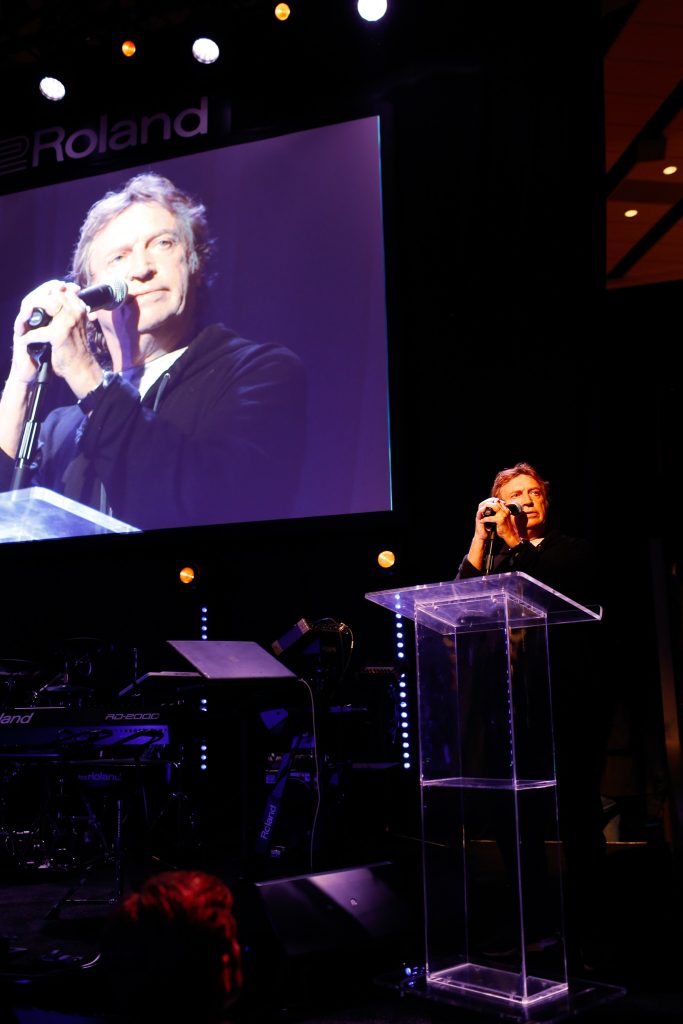
2017: The Year of Remarkable Influence
Rock and Roll Hall of Fame inductee Andy Summers’ use of guitar synthesis was essential to The Police discography. Summers has remained a dedicated BOSS and Roland enthusiast throughout his storied career.
He employed a GR-300 analog guitar synthesizer on the track “Don’t Stand So Close to Me” from Zenyatta Mondatta and on the ’81 follow-up, Ghost in the Machine. Roland products feature heavily on era-defining radio tracks like “Walking on the Moon” and “Every Breath You Take.” During his acceptance speech, Summers acknowledged Roland for expanding his range of sonic possibilities.
Acclaimed for his work in ambient, avant-garde, and electronic music is French composer and producer Jean-Michel Jarre. He’s sold 80 million records throughout his career, including 12 million copies of his influential 1976 release, Oxygène. Jarre recorded the classic in his home studio. Hear the Roland D-50 on Revolutions (1988) and the JD-800 on the Stephen Hawking-inspired Chronologie (1993).
These days, Roland instruments like the SYSTEM-8 help Jarre achieve his desired sound. Additionally, he has a reputation for complex, dynamic, and visually stunning live shows like a virtual reality performance on New Year’s Eve 2020.
2018
Thomas Dolby
Steve Vai
2018: The Year of Musical Disruptors
Occupying a unique realm of the sonic spectrum are Thomas Dolby hits like “She Blinded Me with Science” and “Hyperactive!” Roland and BOSS have been key to Dolby’s career as a musician, author, educator, and Silicon Valley entrepreneur.
He initially picked up BOSS’s DR-55 Dr. Rhythm Drum Machine, the company’s first step sequencer. The artist used the distinct percussion hits on his 1981 b-side “Therapy / Growth.” Dolby later moved on to the JUPITER-4, JUPITER-8, and the D-50, even recording tour bus demos with the TR-808 and TB-303.
Now a Homewood Professor of the Arts at Johns Hopkins University, he published a memoir in 2017. In 2018, Dolby toured with a laptop, MIDI controllers, the TR-08, and several Roland Cloud synths. He praises the meticulously recreated SYSTEM-100 plug-in.
Flexible Six-Stringer
Idiosyncratic Steve Vai cut his teeth at eighteen with Frank Zappa, first as a transcriptionist and then as “stunt” guitarist. Other highlights in Vai’s colorful career include the classic 1984 solo album Flex-Able, releases with David Lee Roth and Whitesnake, and a “Stairway to Heaven” cover featuring Mary J. Blige and Travis Barker.
A longtime Roland and BOSS user, Vai is a huge fan of Roland’s SDE-3000 Digital Delay. In fact, he bought a pair not long after they hit shelves in 1983. The product was essential to his workflow and appears on his ’80s and ’90s projects. “They’re on virtually every recording I’ve done up to The Story of Light,” he wrote in 2015. “They were in my live guitar rig all through Alcatrazz, Roth, Whitesnake, and beyond.”
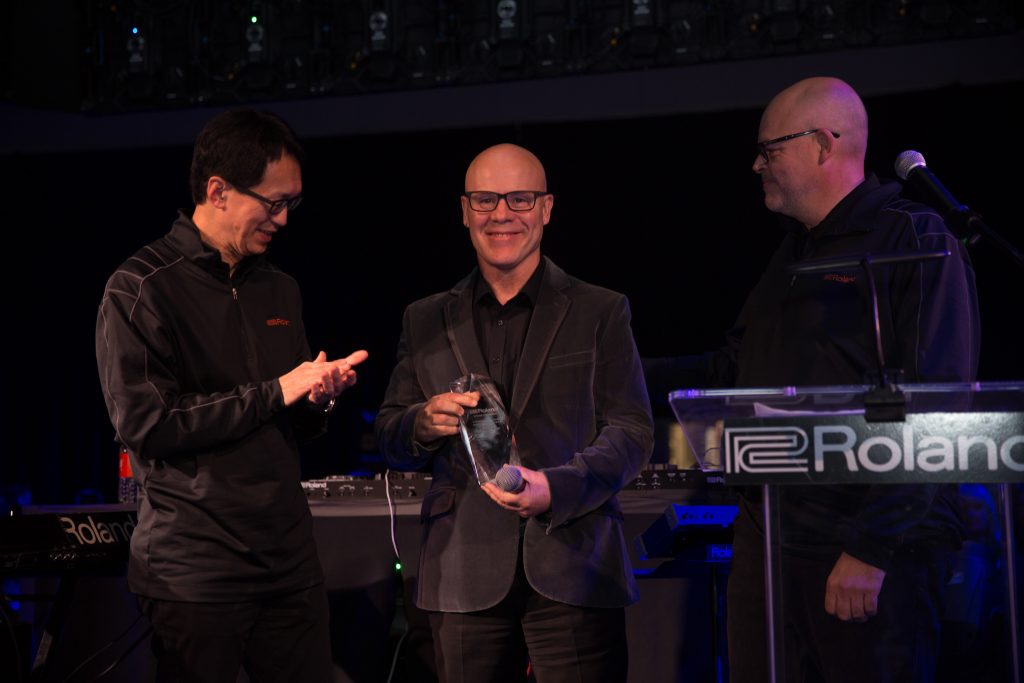
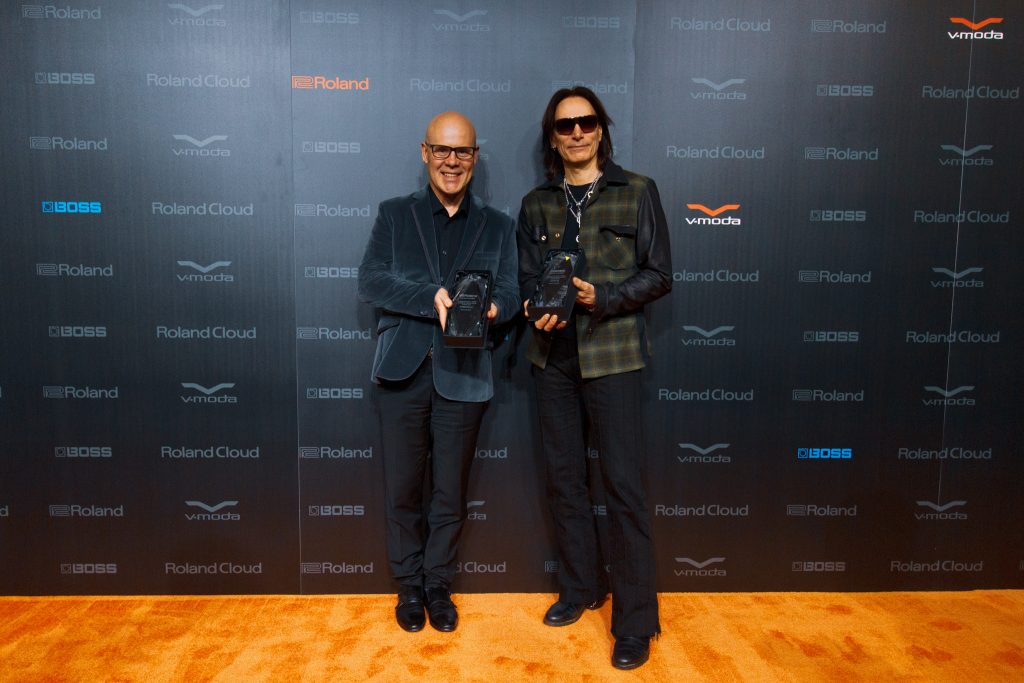
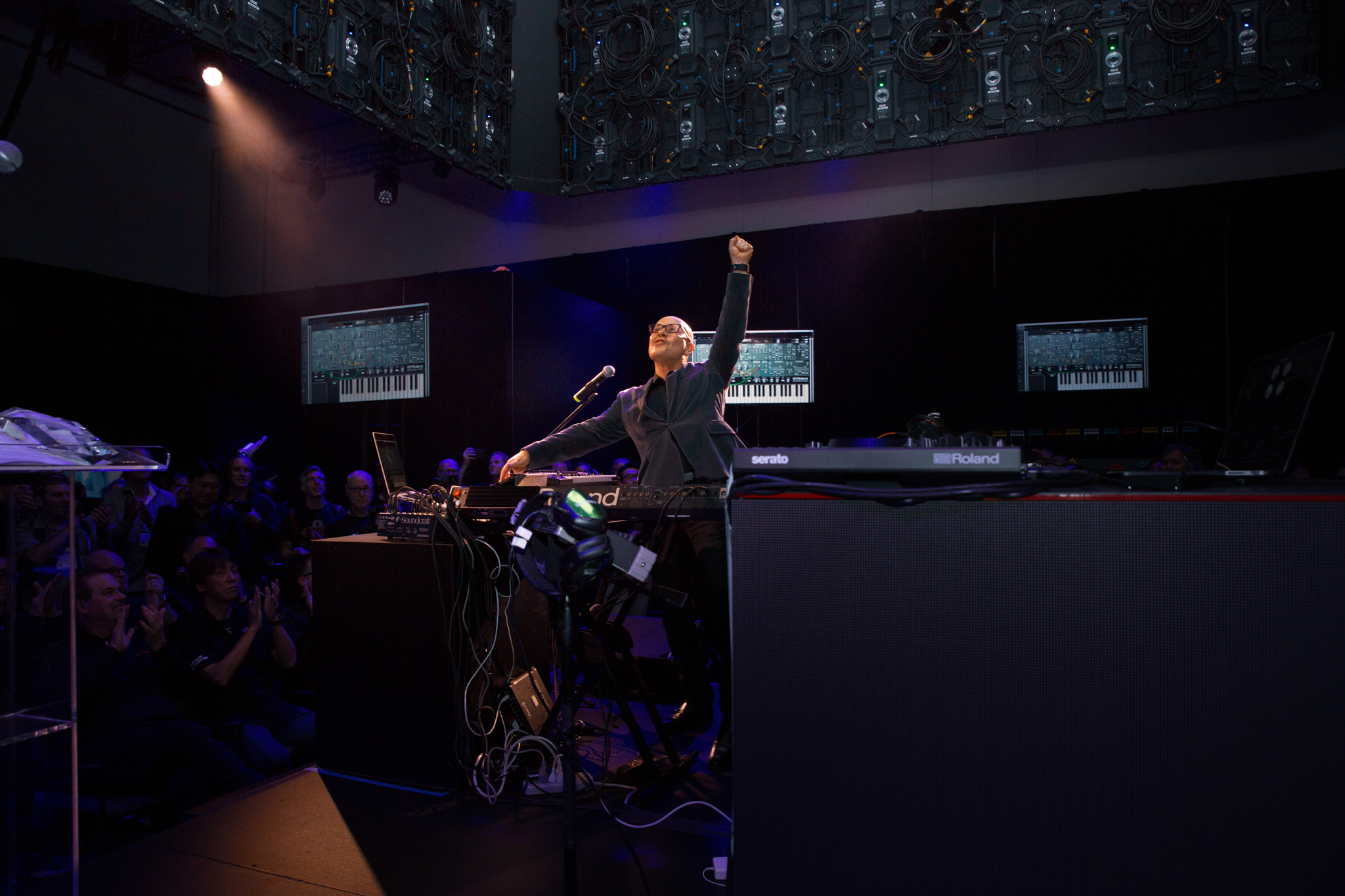
“On every record made in L.A., there is a Roland or BOSS product. Their gear has been incredibly valuable for us all.”
Danny Kortchmar
2019
DJ Pierre
Danny Kortchmar
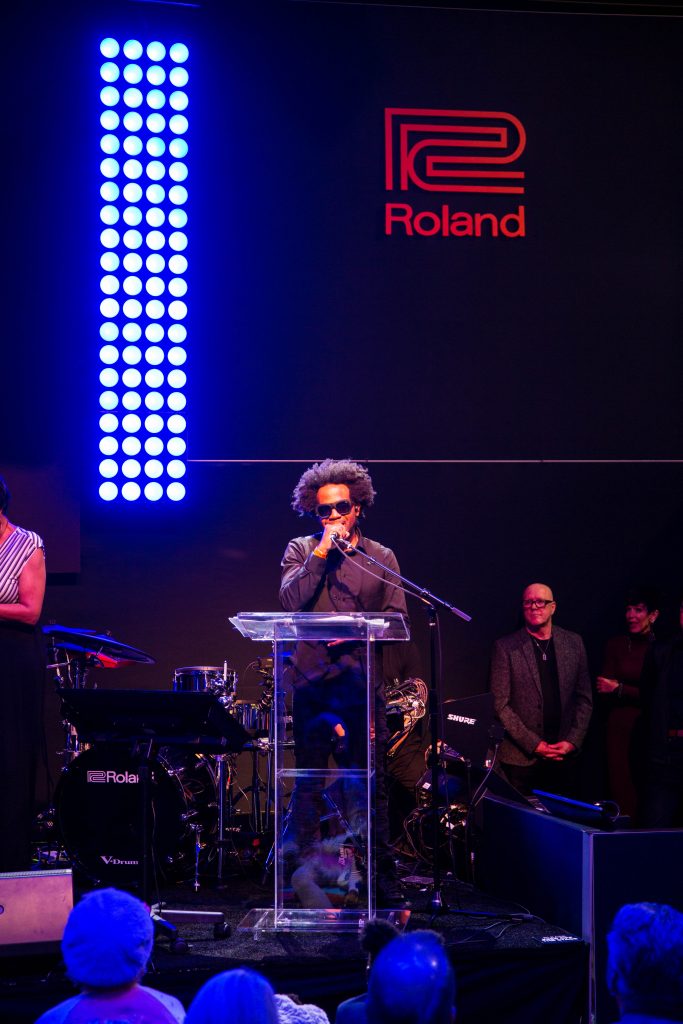
2019: The Year of Innovators and Hitmakers
The 2019 Lifetime Achievement Awards provided an emotional moment. Chicago legends DJ Pierre and late collaborator Spanky received the honor with the latter’s family in attendance. As founding members of pioneering group Phuture along with Herb J, cementing their legacy meant a great deal to Pierre. “When this award happened, I was like, ‘Wow, Spanky you’re a legend. It’s written in stone right now,’” he says.
Their relationship with the Roland TB-303 began when Spanky picked one up secondhand. Pierre’s knob twisting altered the frequency and resonance of 303 bass patterns. Soon, Phuture recorded their 1987 single “Acid Tracks” and created the trademark “squelchy” sound that birthed the acid genre. Additionally, Phuture provided the memorable “acid” name for the new sound.
Acid Inventors
Pierre and Phuture pushed the boundaries of the TB-303 to create an entirely new genre. He stresses the importance of acknowledging the people behind the machine. “What made the acid was the manipulation of the 303,” he says.
Outside of the 303, the JUNO-106 was essential to the majority of Pierre’s tracks that defined his Wild Pitch alias. It gave songs a more menacing feel or a bit of squelch as needed. A legendary TR-808 with mysterious origins also played a critical role in Pierre’s music and the emerging Chicago house music scene in the 1980s. “We literally had one 808 that just traveled around the city,” he says. “It was like a community instrument.”
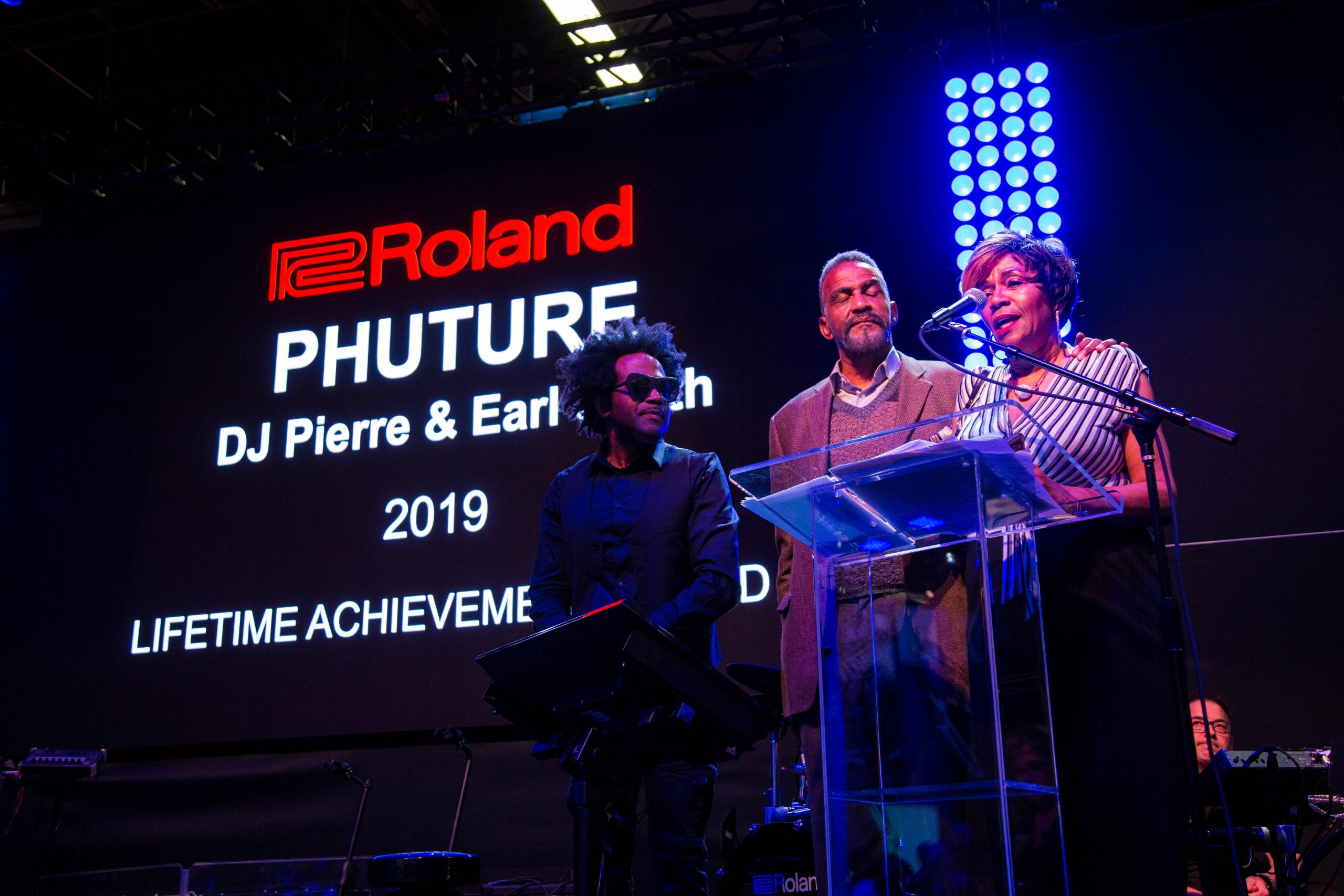
"When this award happened, I was like, ‘Wow, Spanky you're a legend. It's written in stone right now.'"
DJ Pierre
Gentleman Journeyman
Guitarist to songwriter to producer—Danny Kortchmar has done it all. He wrote Don Henley’s “All She Wants to Do Is Dance” and co-wrote Jackson Browne’s “Somebody’s Baby” and “Tender Is the Night.” Kortchmar’s reputation led to work with Billy Joel (River of Dreams), Jon Bon Jovi (“Blaze of Glory”), and Neil Young (Landing on Water). You can even hear his guitar on classics like Carole King’s Tapestry and James Taylor’s Sweet Baby James. These prestigious projects are but a few from his impressive resume.
During his 2019 acceptance speech, Kortchmar emphasized the prevalence of Roland and BOSS gear in studios. “On every record made in L.A., there is a Roland or BOSS product that is on that recording or on that stage. Their gear has been incredibly valuable for us all.”
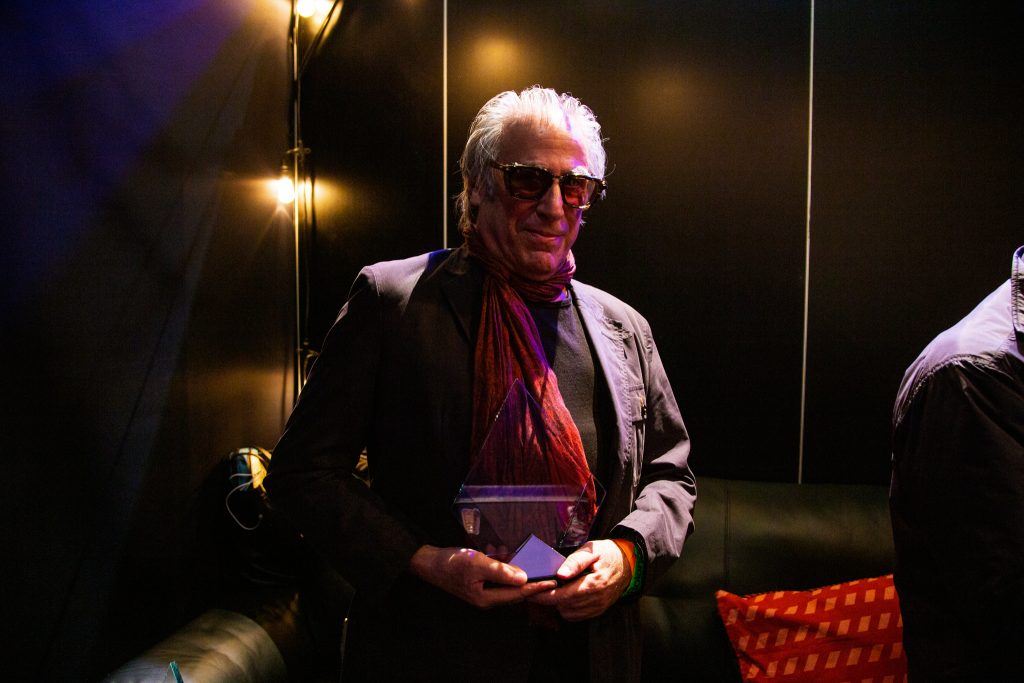
2020
Omar Hakim
Yngwie Malmsteen
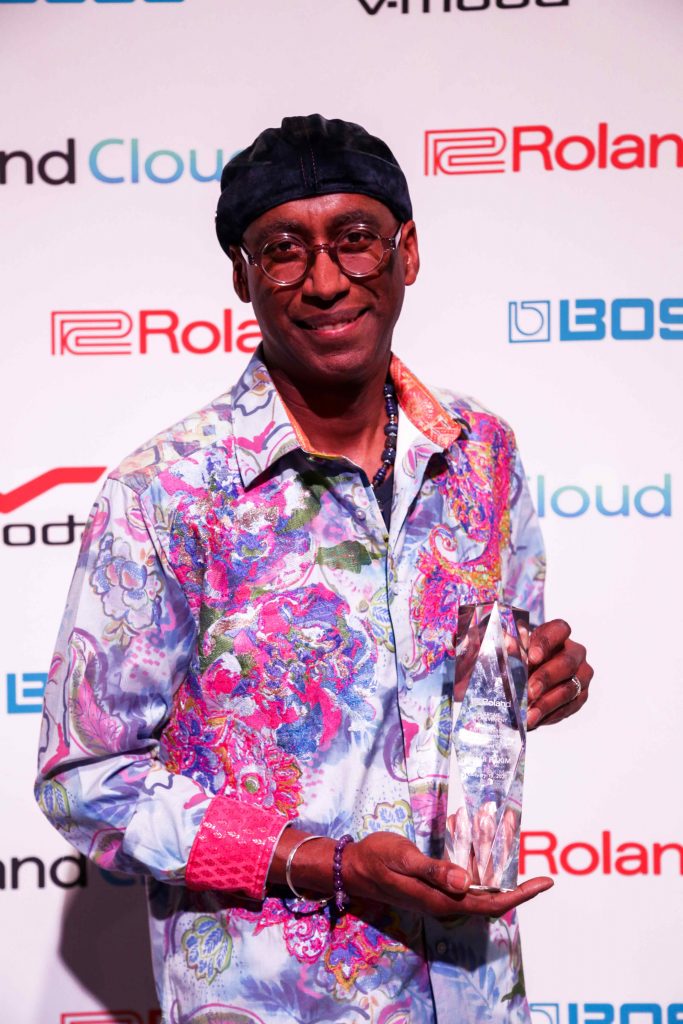
2020: The Year Where Technique Meets Passion
2020 Lifetime Achievement Award-winner Omar Hakim has demonstrated a lifetime of dedication to the art of drumming. As a middle schooler in the early ’70s, he recorded and toured with Jay Mason and opened for Sly and the Family Stone and The Doobie Brothers. By the time he reached high school, he was working with Patty Labelle. This led to a lengthy stint with Weather Report and records for David Bowie. From there, Hakim built a dizzying array of credits. These include Mariah Carey, Celine Dion, Jewel, Daft Punk, Bruce Springsteen, and Sting.
Grooving with Technology
Hakim embraced drum technology as part of his process early on. This began with the Pollard Syndrum before learning how to program a LinnDrum machine in the early ’80s. He noticed how Roland incorporated electronic drum elements into playable kits and picked up their TD-5 and TD-7. Hakim then replayed samples of Michael Jackson hitting different parts of his body for Jackson’s 1995 LP HIStory: Past, Present and Future, Book I.
An avid fan of Roland’s V-Drums, Hakim brought the TD-10 Percussion Sound Module on Madonna’s Ray of Light tour, increasing the product’s visibility.
Shredding with Style
Swedish guitarist Yngwie Malmsteen is known for his neoclassical style and unparalleled technique. Malmsteen’s 1984 debut Rising Force earned a Grammy nomination for Best Rock Instrumental Performance and Guitar World later dubbed him the “greatest shredder of all time.” His 1986 LP Trilogy was a commercial success that received critical notice for the dexterity, speed, and technical precision of the playing.
Malmsteen praised the Roland DC-10 Analog Echo during his speech. Like other artists, he’s spoken about Roland and BOSS products being pivotal early in his career. “It was a revelation that a little white box with a 9-volt battery could blow away this $2,000 thing,” he told BOSS about the NS-2 noise suppressor.
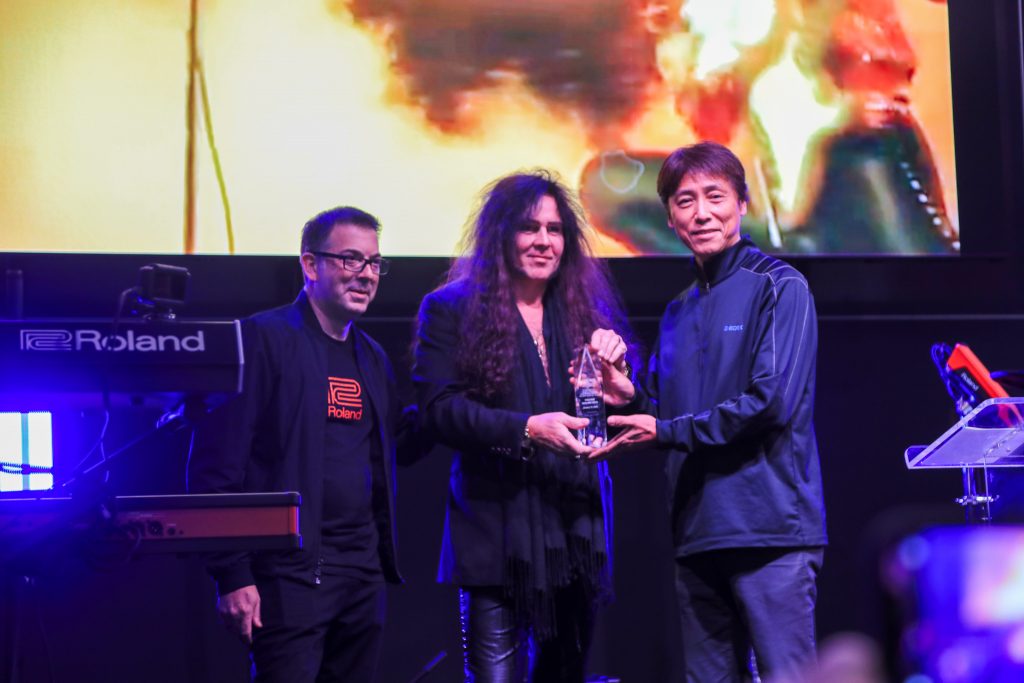
"You hear guitarists talk about the Les Paul or the Stratocaster they can’t do without. For me, this has always been the JUPITER-8."
Nick Rhodes
2021
Nick Rhodes
Johnny Marr
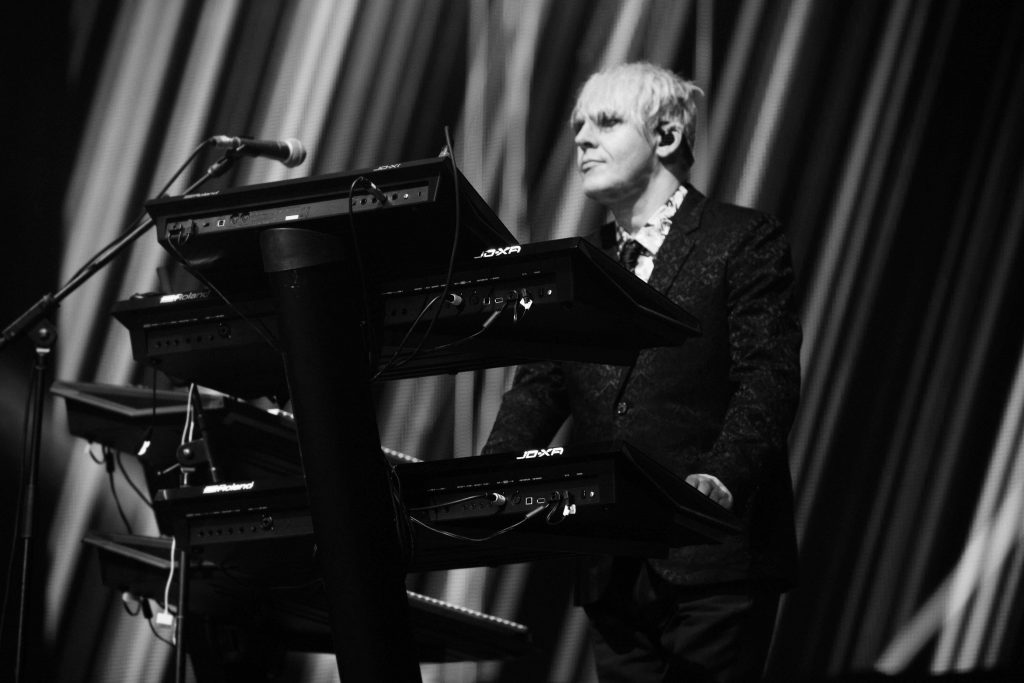
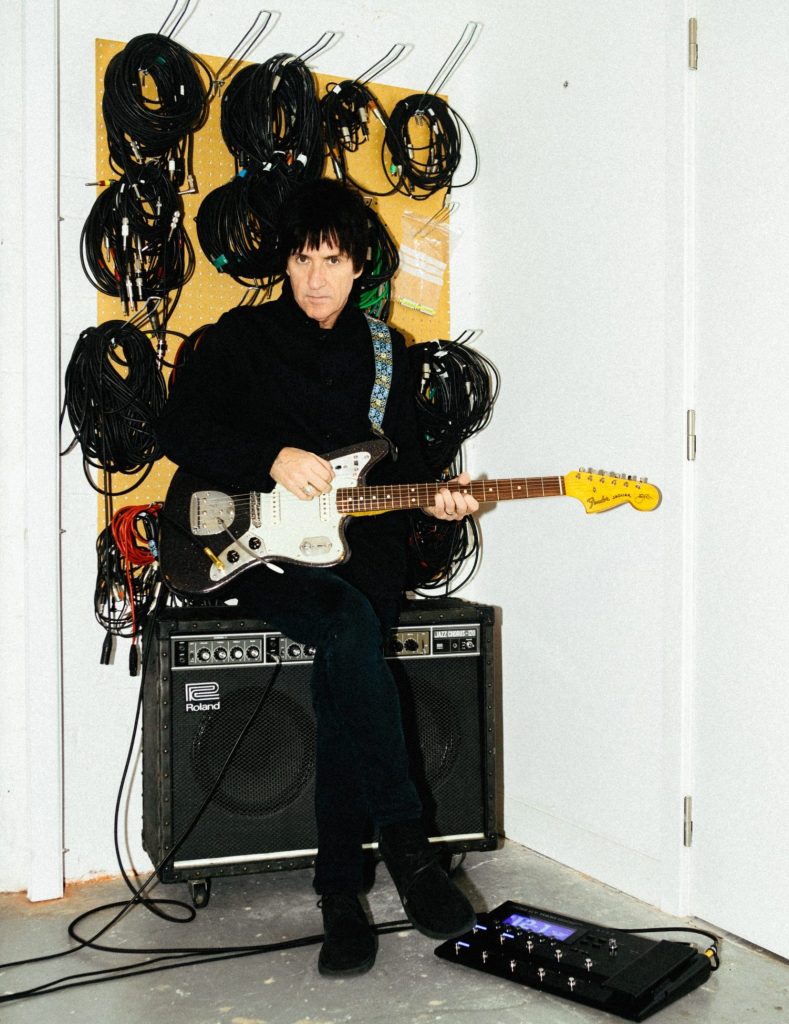
2021: The Year of the Alternative Icons
Amid a global pandemic, it was important to Roland to continue its tradition of giving the Lifetime Achievement Awards as a form of celebration. This year, they honored Duran Duran’s founding member and keyboardist Nick Rhodes.
A fan of the intuitive nature of Roland synths, Rhodes used the JUPITER-4 extensively on Duran Duran’s 1981 self-titled platinum debut. It’s all over the hit title track of their critically-acclaimed 1982 follow-up Rio. You’ll also hear a great deal of the JUPITER-8 throughout the record. He has since cited the JUPITER-8 as his favorite because of its warm sound and ease of manipulation. “You often hear guitarists talking about the ultimate Les Paul or the 1959 Stratocaster that they can’t do without,” he said in his acceptance speech. “Well, for me, this has always been the JUPITER-8.”
Rhodes’ use of Roland continued into the 2000s. He played the JD-XA on Duran Duran’s celebrated 2015 return Paper Gods.
From Manchester with Marr
2021 BOSS recipient Johnny Marr began his prolific career in Manchester with The Smiths. This kicked off a legacy as one of the most influential songwriters and guitarists in the history of British music.
The formidable Marr is known for eclectic collaborations with acts across many genres. His career boasts recording and live work with the Talking Heads, Electronic, Modest Mouse, Hans Zimmer, and Billie Eilish. His acclaimed solo career has seen multiple Top Ten albums.
To honor Marr on receiving his award, artists from around the globe shared their warm congratulations. These included Billy Duffy, Iggy Pop, Rick Nielson, and many others.
2022
Gary Numan
Jim Keltner
2022: The Year of the Trailblazers
In 2022, Roland inducted a pair of musicians who influenced the course of music history in wildly different manners. Pioneering electronic artist Gary Numan paved the way for scores of acts with his flamboyant, otherworldly sounds and look, while Drummer Jim Keltner has provided the backbeat that fueled the pop charts for decades.
Numan is regarded as one of the foremost trailblazers in electronic music. The UK-born artist combined synthesizers and a glam sci-fi image into a gleaming package that was wholly new, resulting in classic songs like “Cars” and “Down in the Park.” His innovative sound and striking aesthetic, first as the leader of Tubeway Army and later as a successful solo artist, influenced generations of musicians from new wave to nu-metal and beyond. Numan’s famous fans include Tears for Fears, Afrika Bambaataa, and Damon Albarn.
The enigmatic artist has sold over ten million records while cultivating a devoted fanbase who call themselves Numanoids. A slew of rock acts, including Nine Inch Nails, Foo Fighters, and Fear Factory, have covered Numan’s material, while festival favorites Basement Jaxx and Armand van Helden have integrated his futuristic vibe into their recordings via samples. Numan continues to blaze a self-styled trail, appearing at the Cruel New World fest and touring behind the 45th anniversaries of his iconic releases Replicas and The Pleasure Principle.
Jim Keltner
Legendary drummer Jim Keltner broke into the Los Angeles music scene during the heady days of the mid-‘60s and went on to become one of the world’s most respected session musicians. In addition to performing on songs by Bob Dylan, Roy Orbison, and Carly Simon, Keltner has the distinction of playing on recordings by three of the four Beatles. As a live player, he has shared stages with Simon & Garfunkel, Neil Young, Willie Nelson, and many others.
While he is often noted for his contributions to ’70s classics like “Josie” by Steely Dan and Randy Newman’s “Short People,” Keltner remains wildly active in the recording world. In recent years, he has collaborated with artists like She & Him, Jenny Lewis, and Conner Oberst, for whom he produced Salutations in 2017. Underlining his place in pop music history, Keltner is the drummer on both Traveling Wilbury’s albums under the tongue-in-cheek stage name “Buster Sidebury.”
2025
Patrice Rushen
Sheila E.
Steve Stevens
2025: The Year of Individuality
The artists honored in 2025 each possess a striking style and approach to music that is distinctly their own. Patrice Rushen’s career is an idiosyncratic blend of roles: songwriter, composer, keyboardist, and educator. Sheila E. brought Latin percussion to mainstream audiences and inspired legions to pick up drumsticks. Finally, Steve Stevens leaped out of TV sets in the ’80s alongside Billy Idol, his jet-black hair and laser gun guitar burning an indelible impression on music fans’ eyeballs.
Rushen, a renowned songwriter and keyboardist whose iconic songs have appeared in film, radio, and television, was chosen to represent Roland. In addition to her landmark solo releases, Rushen has collaborated with artists including Stevie Wonder, Herbie Hancock, Carlos Santana, Boyz II Men, George Benson, Jean-Luc Ponty, Tom Jones, Nancy Wilson, Michael Jackson, and Sheena Easton.
Among many career achievements, Rushen was the first woman to serve as musical director for the Grammy Awards. She also was musical director for Janet Jackson’s janet. album tour and saw her 1982 Grammy-nominated recording “Forget Me Nots” sampled for “Men in Black” by Will Smith.
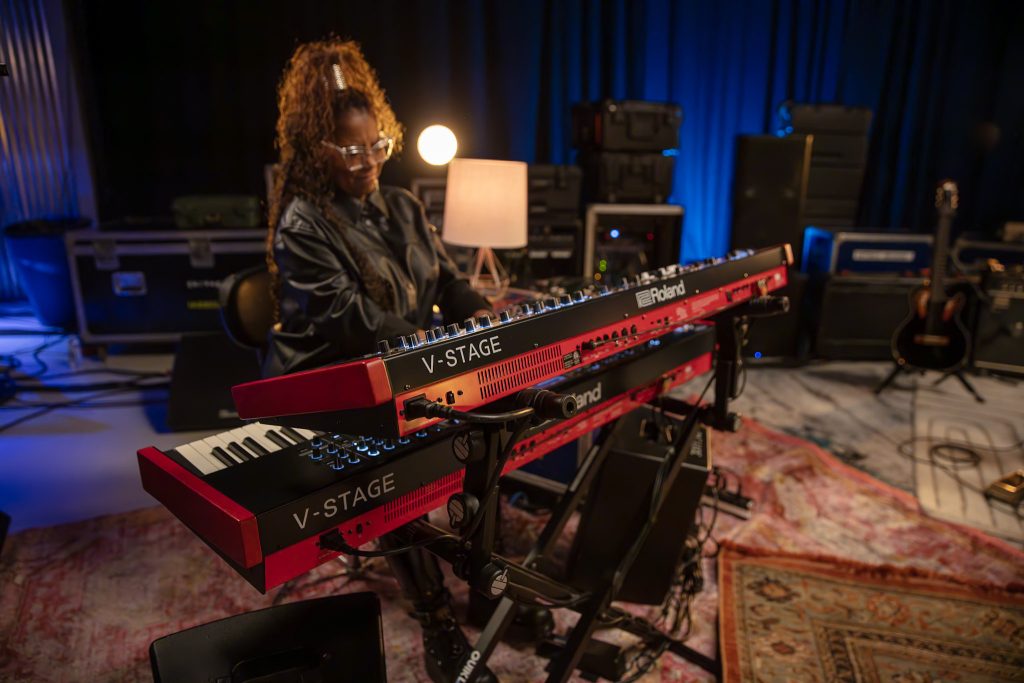
"I am attracted to interesting sounds. These amazing instruments give my creative thoughts wings."
Patrice RUSHEN
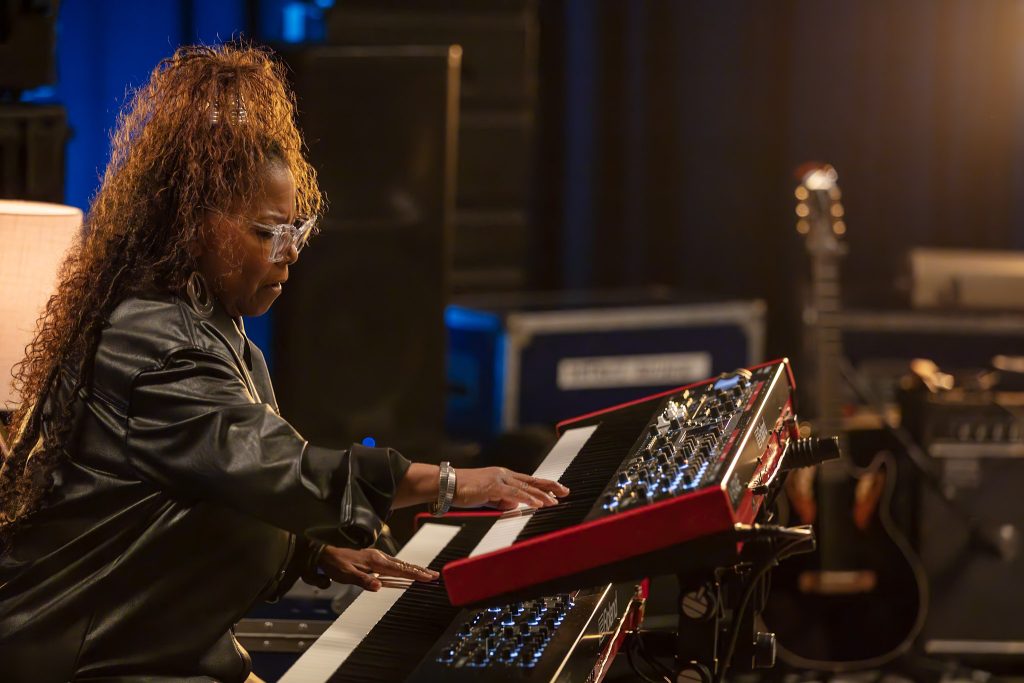
In the world of academia, Rushen received an Honorary Doctorate of Music from Berklee College of Music for “outstanding contribution to music and culture” and currently teaches at USC Thornton School of Music, mentoring the next generation of creatives.
Speaking about the Roland Lifetime Achievement Award, Rushen said: “It is an honor to be the recipient of Roland’s Lifetime Achievement Award this year. As a musician who plays keyboards, composes, and writes songs, I am attracted to interesting sounds. The extensive line of Roland keyboard instruments has continually offered unlimited possibilities, whether in re-creating the characteristics of existing instruments or discovering sonic color combinations. These amazing instruments give my creative thoughts wings.”
Rushen added that the relationship is ongoing and evolving. “I truly appreciate the recognition and acknowledgment of my artistry with this wonderful award,” she said. “I remain inspired by our partnership. Thank you to all at Roland for your show of support to me and to so many musicians who value the joy and the fun of music-making. It is awesome to work with a company that values the same.”
“It's a recognition of not just my contributions to music, but also our enduring partnership that has continually inspired innovation."
SHEILA E.
Recognized by DW, Sheila E. is one of the world’s most distinctive and dynamic drummers/percussionists. She has a lengthy career behind the kit for Prince, Beyoncé, and Ringo Starr. Her solo career includes hits like “The Glamorous Life” and “A Love Bizarre” and continues to thrive with 2024’s salsa release, Bailar, which received two Grammy nominations.
The daughter of percussionist Pete Escovedo, Sheila E. grew up as part of a musical family with a lineage spanning jazz, punk, and rock. That heritage shaped her career early on when she and her father released Solo Two, which led to collaborations with Marvin Gaye, Herbie Hancock, Michael Jackson, Diana Ross, and George Duke.
Sheila E.’s prolific period with Prince includes performing as the opening act for the Purple Rain tour and appearing in the Sign o’ the Times concert film. Following the artist’s passing, Sheila E. served as musical director for Let’s Go Crazy: The Grammy Salute to Prince concert at the Staples Center.
“I am incredibly grateful to be honored with the DW Lifetime Achievement Award,” Sheila E said of receiving the honor. “It’s a recognition of not just my contributions to music, but also our enduring partnership that has continually inspired innovation. I’m thankful to DW for their support and for championing high standards in the music industry.”

“Where would songs like ‘Eyes Without a Face’ and ‘Flesh for Fantasy’ be without the CS-1 Compression Sustainer and CE-2 Chorus on my guitar tracks?"
Steve Stevens
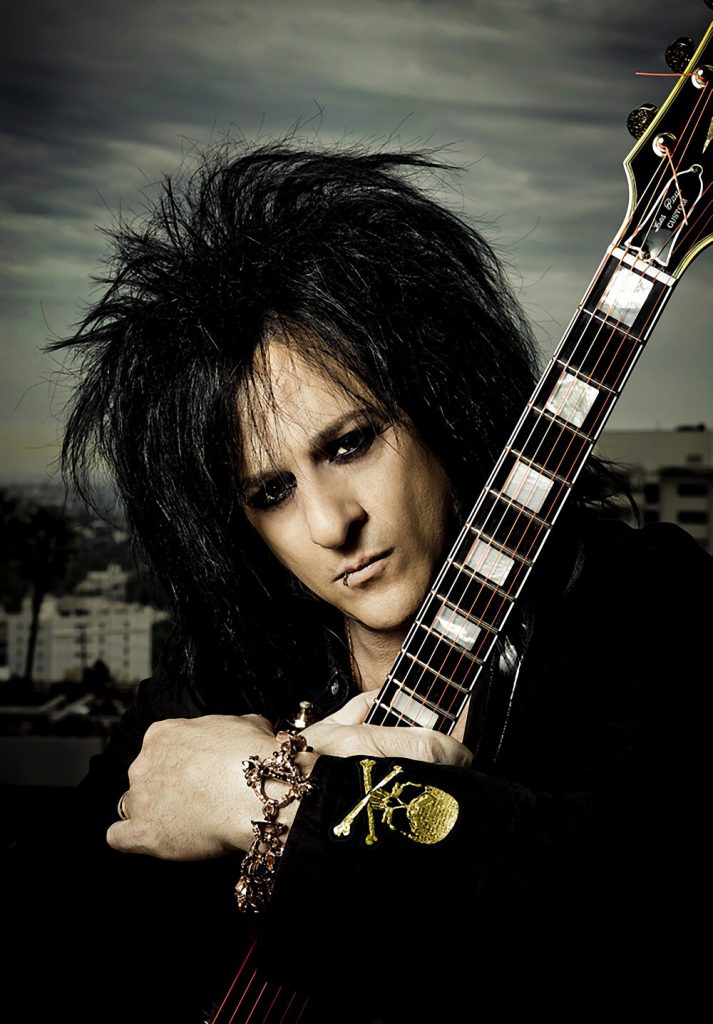
Revered for his unique blend of rock swagger with sci-fi guitar pyrotechnics, Stevens is best known for his longstanding partnership with the iconic Billy Idol with whom he co-wrote chart-toppers like “Eyes Without a Face” and “Rebel Yell.” In addition to his role alongside Idol, Stevens has played with Michael Jackson, Ric Ocasek, Robert Palmer, and others. As a solo artist, he’s experimented with numerous genres across releases like Atomic Playboys, Flamenco a Go-Go, and Memory Crash.
The guitarist also contributed his distinctive playing to the film world on “Top Gun Anthem,” a Harold Faltermeyer track that won a Grammy in 1987 for Best Pop Instrumental Performance. Throughout his career, Stevens has utilized BOSS gear in the studio and live, including on “Top Gun Anthem.” Steven’s pioneering guitar synth work is another cornerstone of his sound, which continues to evolve—from ’80s classics like right up through Billy Idol’s 2022 EP, The Cage.
“As far back as I can remember, BOSS was there as some of my first guitar effects pedals—from saving paper route money for an OD-1 OverDrive to having a complete BOSS pedalboard for the recording of the Billy Idol Rebel Yell album,” Stevens said. “Where would songs like ‘Eyes Without a Face’ and ‘Flesh for Fantasy’ be without the CS-1 Compression Sustainer and CE-2 Chorus on my guitar tracks? BOSS continues to be forward-thinking and innovative. It’s an absolute honor to be recognized by BOSS for my contributions in music.”
2026
Prince Paul
Adam Granduciel
Josh Freese
Karl Perazzo
2025: The Year of Resonance
The four artists honored this year have infiltrated music culture, leaving an influence that resonates across their diverse styles. As different as the kaleidoscopic hip-hop soundscapes of Prince Paul are from Adam Granduciel’s hazy guitar symphonies, both musicians shape the conversation in their respective genres. Similarly the propulsive power of drum icon Josh Freese and percussionist Karl Perazzo drives the grooves of the countless acts with which they play. In short, these 2026 inductees all possess the kind of influence that reverberates.
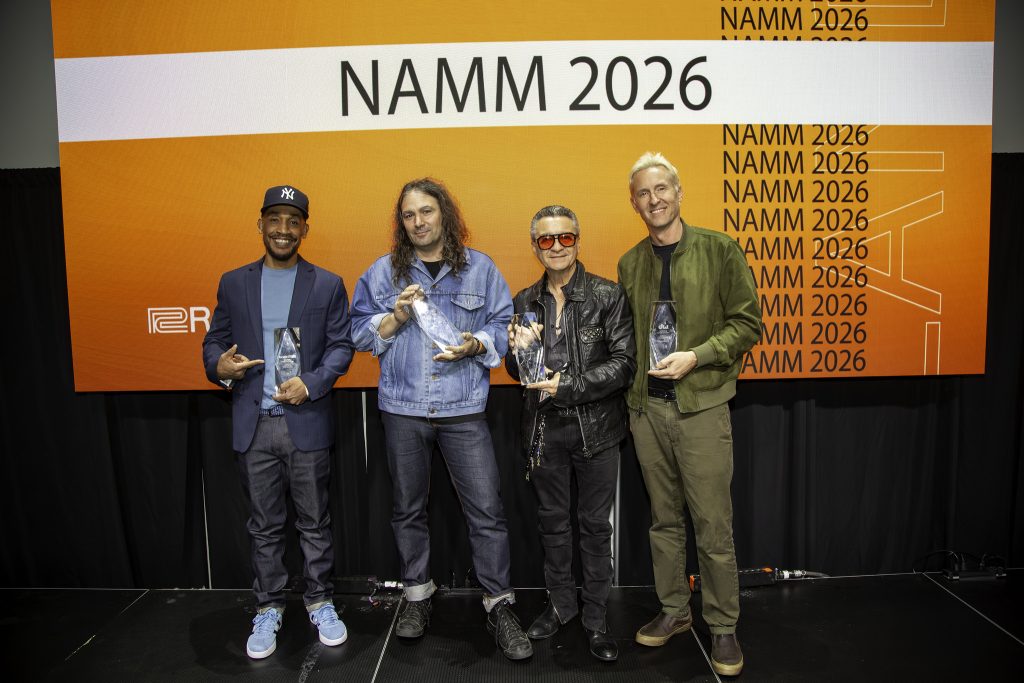
"I’ve been making records for over 40 years, and to still be recognized for my musical contributions is very humbling."
Prince Paul
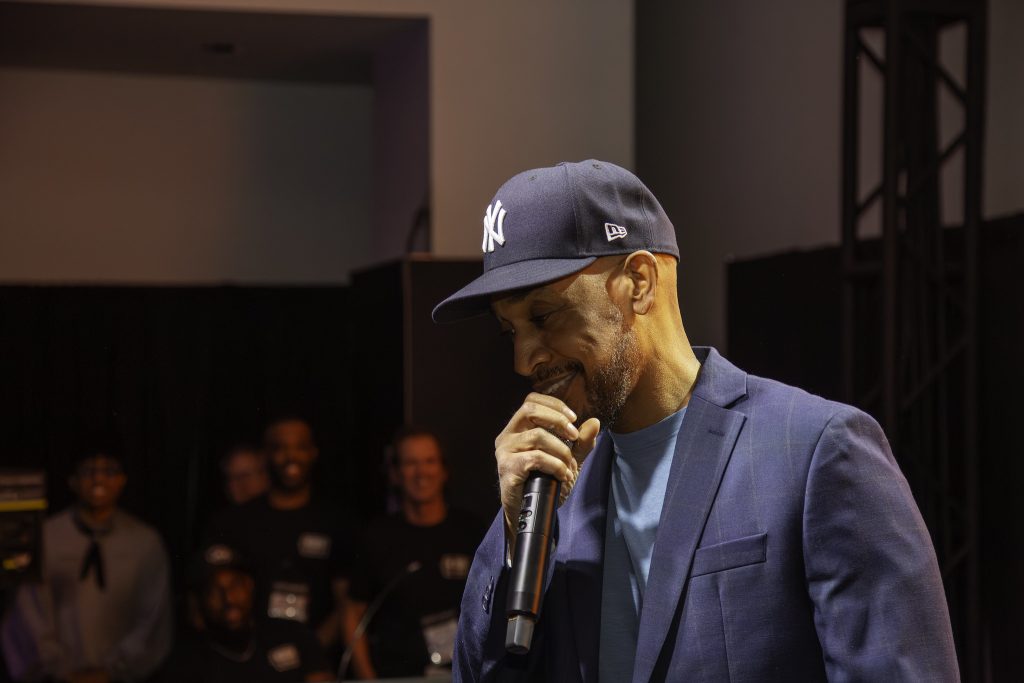
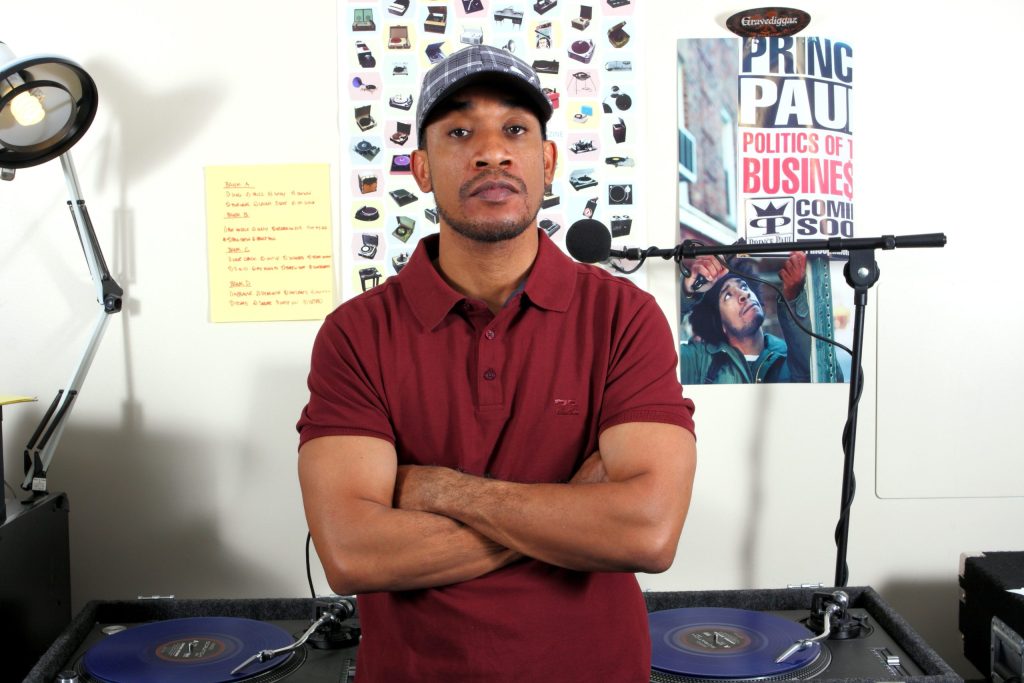
Prince Paul is one of the most influential and imaginative figures in hip-hop history, widely credited with helping transform the genre into a fully realized art form. Emerging in the late 1980s as the DJ and primary producer for Stetsasonic, his career includes co-founding Gravediggaz and Handsome Boy Modeling School, releasing influential solo projects, composing for film and television, and more.
Central to his sound has been an intuitive command of rhythm and production tools, including the iconic Roland TR-808 and TR-909, which helped shape the feel, swing, and sonic identity of his work. Prince Paul’s career stands as a blueprint for innovation, longevity, and artistic fearlessness.
“I would have never thought that, as a young teen learning how to program on a piece of Roland gear, that one day I’d make hit music, let alone be recognized by the company that was pivotal in my musical beginnings,” Paul said. “I’ve been making records for over 40 years, and to still be recognized for my musical contributions is very humbling.”
Speaking about the TR-808, Paul said: “The programming was so easy. I learned how to really rock that thing in ten minutes, and the sound was like nothing I’d ever heard at the time. Then came the 909, which was easy for me to program, too. Those kicks and snares were so heavy! I loved that thing. What’s next for me now is the new TR-1000. That machine is nuts!”
“The BOSS BR-8 opened up a whole new world for me. I also discovered the SG-1 Slow Gear through the BR-8—the famous slow attack effect."
Adam Granduciel
As the creative force behind The War on Drugs and beyond, Adam Granduciel has built a sound that stretches time and space, layering melody, memory, and motion. Granduciel’s approach removes the gaps between the underground and the mainstream, between the obtuse and the anthemic, making records that wrestle a fractured past into a unified and engrossing present, leading The New York Times to hail the band as “among the defining rock linchpins of the 21st century so far.”
Throughout his career, he’s relied on BOSS pedals both live and in the studio, using their versatility and reliability to shape performances that resonate across intimate venues and
“My first BOSS pedal was the BF-2 Flanger, followed by the DS-1 Distortion, and eventually the DD-7 Digital Delay,” Granduciel explained. “I played guitar all day and night, but it wasn’t until age twenty that I really got into recording myself.”
He went on to describe another pair of pedals that had a massive impact on his sound. “The BOSS BR-8 opened up a whole new world for me. I also discovered the SG-1 Slow Gear through the BR-8—the famous slow attack effect. I used it on everything for years, and eventually found a real one in Switzerland. I used it constantly, especially during the live psychedelic intro to ‘Under the Pressure.’”
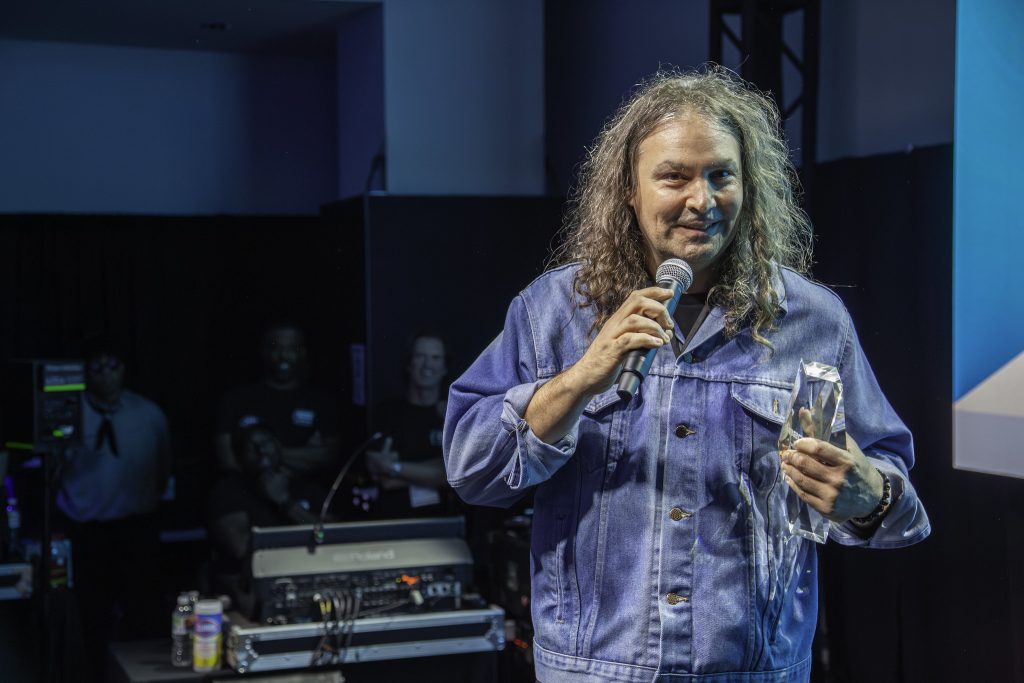
"Josh Freese has been part of the DW family since 1985, first crossing paths with Don Lombardi at NAMM and becoming an endorsee at just 12 years old."

Josh Freese has been part of the DW family since 1985, first crossing paths with Don Lombardi at NAMM and becoming an endorsee at just 12 years old. This is a deep partnership that’s grown alongside an almost 40-year career driving the drums for everyone from Nine Inch Nails and Sting to Queens of the Stone Age.
Josh Freese has earned a reputation as one of the industry’s most versatile and in-demand freelance drummers. He is known for his incredible versatility across rock, punk, and new wave. Freese also possesses the unique ability to slot into established rock groups and sound like he has always been there, as he did with Foo Fighters following the death of Taylor Hawkins.
From playing drums at Disneyland at the age of 12 to gracing the stage and studio with rock music’s elite, this award recognizes his exceptional career. “There’s a truism that ‘a band is only as good as its drummer,’” said no less a source than Sting. “Any band that Josh graced with his presence on the kit was fortunate indeed.”
"Long live the rhythm of the heartbeat!"
Karl Perazzo
An acclaimed world-class percussionist, Karl Perazzo is best known for his showmanship, deep groove, and precise technique on timbales and congas. He frequently demonstrates his prodigious skills across an extensive percussive setup in his dynamic solos as a longstanding and vibrant percussionist with the renowned Latin rock group, Santana.
Born and raised in San Francisco’s Mission District, Karl has recorded five albums with Santana. including the 11x Grammy award winner, Supernatural. He has also recorded and played with Malo, Dizzy Gillespie, Mana, Zucaro, Dennis Chambers, Sheila E., Prince, Mariah Carey, John Lee Hooker, Dave Matthews, Phish, Rusted Root, Ricky Martin, and many others.
Karl’s singular style blends tradition, innovation, and pure feel. Speaking about the 2026 award, Perazzo said, “To receive the Lifetime Achievement Award for percussion is more than an honor; it’s a reminder that sound resonance and vibration are forever connected. Long live the rhythm of the heartbeat!’”
Looking Ahead
Since their inception, the Roland and BOSS Lifetime Achievement Awards have been a resounding success. They’ve honored deserving artists while providing a timeline of how artists continue to shape music using these innovative tools. The awards will likely continue to evolve and develop in new and exciting ways in the years to come. Above all, they’ve strengthened the collaborative dialogue and mutual respect that exists between Roland, BOSS, DW, and musicians.
